Review of Ran: Double Disc Special Edition
Introduction
After a five year hiatus from directing, Akira Kurosawa would return to the Jidaigeki (period) genre and the `Warring States` era for his 28th movie, the next step after 1980`s `Kagemusha`. Although commonly regarded as a direct transposition of William Shakespeare`s `King Lear` to feudal Japan, a play to which it bears an immeasurable debt, Kurosawa has stated in interviews that his initial genesis point for `Ran` was familairising himself with the tale of the great 16th century warlord Mōri Motonari, a man who sired three mighty and loyal sons. To quote the man himself: "I started to think, the house was prosperous and the sons were courageous; what if this fascinating man had bad sons?" By 1980 when it came to putting together `Kagemusha`, Kurosawa had difficulty finding a good source of funding for his projects in his home country, so turned to outside sources finance, namely Francis Ford Coppola and George Lucas. To get the ball rolling on `Ran`, Kurosawa turned to our cousins across the channel and in particular, Euro-producer extraordinaire Serge Silberman.
In `Ran`, Tatsuya Nakadai (who played the kagemusha in the film of the same name) plays Hidetora Ichimonji, an aging warlord and ruler of a vast empire of conquered country. To the suprise of all around him, he abdicates his position as ruler, and hands the reigns of power over to Taro, his eldest son, with Taro`s two brothers to act as second and third. When his youngest, Saburo, and Hidetaro`s vassal Tango question this, the old man sees their concern as a sign of disrespect, and banishes them both from the realm. But power corrupts, and as the old man is driven mad by his sons` actions and a land divided by war and pandemonium, he gradually begins to regret his decision and realises the only hope for peace lies in with ostracised Saburo.
`Ran`, which translates from Japanese as `Chaos`, is presented here as a two-disc set from Optimum Releasing.
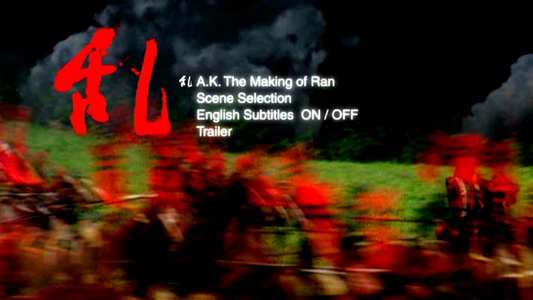
Video
Ran is presented in 1.85:1 anamorphic widescreen, and is a prime example of a print kept in near-pristine condition. Good saturation and rich blacks, sharp detail and a wonderful depth of colour, with noise and grain kept at an arm`s length for the most part. Optimum, going by past experience, aren`t renowned for their print clean-ups, and they`ve really lucked out with a print that`s in mint condition. This transfer of `Ran` looks like it could have been filmed yesterday.
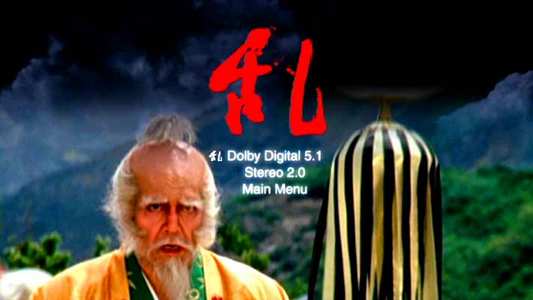
Audio
One word: disappointing. While `Ran` sports Dolby Digital Japanese in both 5.1 and 2.0 flavours, neither is about to set your sound system on fire (in the good way). The DD 5.1 is flat, with almost no use of the surround soundstage. The front surrounds are used to a bare-minimum, and the rears lay dormant for the entire film. You may as well be watching a mono track for all the use that most of the channels are put to. However, everything is clear from the centre channel, and there`s little in the way of dialogue muffling, hiss or drop out; this also applies to a spot-check performed on the DD 2.0.
Optional English subtitles
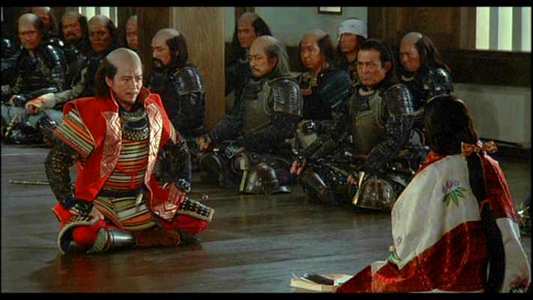
Features
With the exception of a French theatrical trailer, the second disc is dedicated to the 70-minute documentary `A.K: The Making of Ran`. Directed by auteur Chris Marker and made during the filming of `Ran`, `A.K is a stand-alone film in its own right, but it`s over-long, pretentious, and even a little boring. But it does give the film-making process, in particular Kurosawa`s dogged techniques, a little more depth. It`s a valuable (if a little skeletal in terms of entertainment) accompaniment to the feature itself.
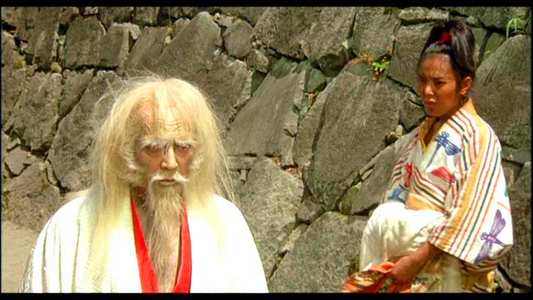
Conclusion
`Ran` was Kurosawa`s most ambitious project, the most expensive Japanese film of all time, and manages to be both breathtakingly exquisite and unrelentingly bleak the same time. Visually striking, with the photography, costuming and sets dripping with unrivaled charm, the gloss is wrapped around a compelling dark fable and an ultimately powerful piece of movie-making. The production is nigh-on faultless, and `Ran` works as both an enormous spectacle and an introverted look at a family tearing itself apart through greed, ambition, treachery and backstabbing, all in the name of the pursuit of absolute control. There are multiple facets to the tale - a father`s descent into madness, the corruption and political wranglings of two brothers, a power hungry mistress - and all are fleshed out with an immediacy in the performances.
Tatsuya Nakadai, as the old warlord, carries the heart of the film, albeit a little rigidly. Ridiculed, slighted and disrespected at every turn after relinquishing power, he`s convincing as a man struggling to live with making the mistake of handing the reins of power over to his sons, who quickly turn on him, and each other, when they smell the slightest whiff of an opportunity to consolidate their positions. The script is both tragic and endearing, even managing to work in a little light comedy amongst the pathos, particularly from Mieko Harada as Lady Kaede, Taro`s wife and a Lady Macbeth in sheep`s clothing; a woman who is more power-hungry and conniving than all of the men in the film put together. It`s with these merits that Kurosawa brings Shakespeare`s play to life with vivid attention to detail, giving personality and an emotional face to a plethora of deceitful characters in a rather lengthy, dialogue-heavy movie which, remarkably, never gets stalled by ill-pacing.
Kurosawa had a gift for capturing a technical flair that couldn`t be achieved today with a dozen directors and a dozen CGI houses. Never more-so than with `Ran`, in which each frame is lovingly crafted and majestically shot. Kurosawa was known for his lavish hand-painted storyboards, and with `Ran`, it`s said he draughted every scene in this way. And boy does it show. Whether it`s long shots of characters on lush, green hilltops or in the buzz, hustle and heat of blood-soaked, yet poetic battle, Kurosawa`s eye for composition is to this day truly unrivaled. He could be accused of over-showmanship, but as a director in his twilight years (he was 75-years old when he completed filming), he developed a maturity in his filmmaking that ensured he could delicately balance the lush aesthetics with a complex and convincing portrait of human behaviour at its uttermost morose. Weighing in at a hefty 155-minutes, `Ran` isn`t lightweight, but the investment pays off with the reward of perhaps the ultimate Japanese Jidaigeki epic. It`s a far cry from his smaller-scale masterworks like `Rashômon` or `Seven Samurai`, and there are sure to be some who have a preference for them. But `Ran` not only shows a deeper side to the great director, but a man who had reached a point in his career where he could make the sort of film he had always wanted to. `Kagemusha`, a flawed, but potent attempt to do something similar, seems like a dry run for `Ran`, and for all its qualities, good or bad, can`t help but languish in the shadow of `Ran`, such is the enormity of Kurosawa`s last great epic.
Perhaps the only fly in the ointment is Saburo. A little extra fleshing out of his character wouldn`t have gone amiss. As it stands, he disappears at the beginning of the tale, the viewer brought up to speed with his plight with a few lines of dialogue, before he appears again at the magnificent climax. But to do this would almost certainly loosen the film of its pace without losing some of the present scenes; and when each is perfectly rounded and deserving of its place in the movie, a gripe becomes no more than a ponderance. Perhaps `Ran` isn`t for Kurosawa beginners, either. While anyone could probably enjoy it immensely even if they`ve never seen any sort of movie before, having seen the pictures from his heyday and appreciating how much he grew as a filmmaker brings with it an extra appreciation of `Ran`. All in all, Akira Kurosawa has a well deserved legendary status, and he himself considered `Ran` to be his finest work; it`s hard not to see his point. It may not be his final film, but it`s certainly his last hurrah.
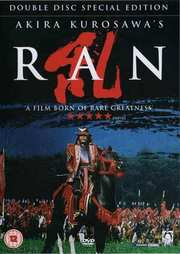
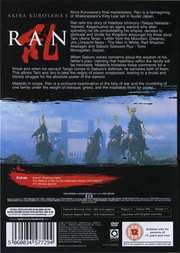




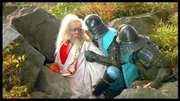
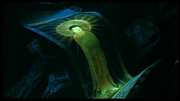
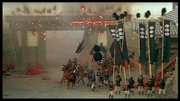
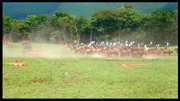
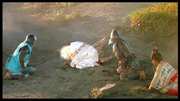
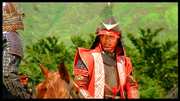
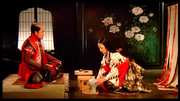
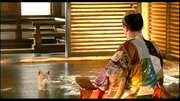
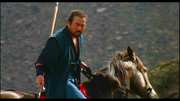
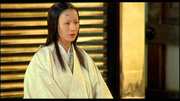
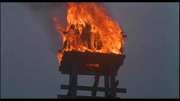
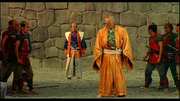
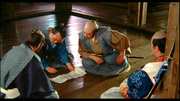
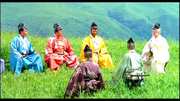
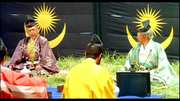
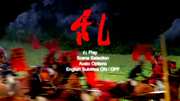































Your Opinions and Comments
Be the first to post a comment!